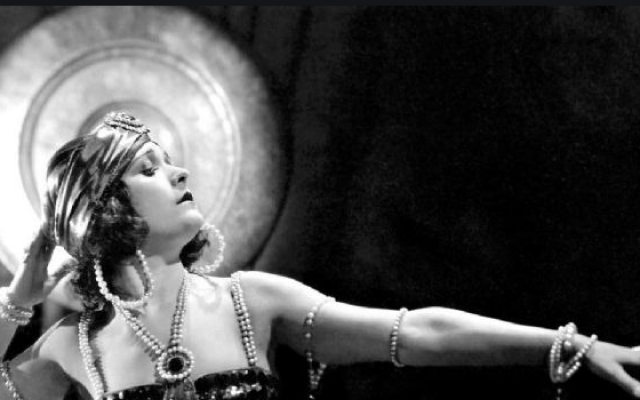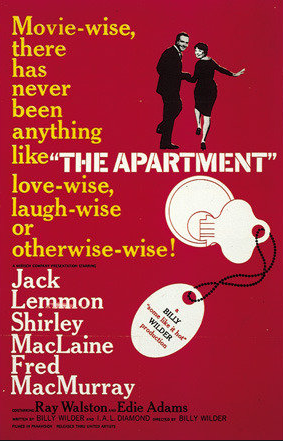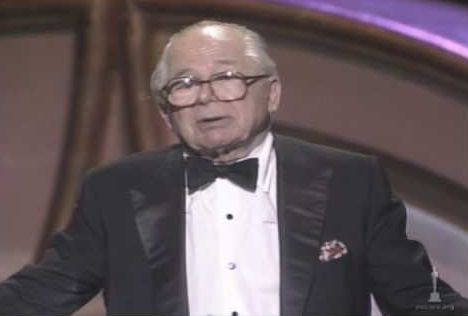Billy Wilder Film Retrospective at Emory
Billy Wilder, one of the true giants of Hollywood, is the subject of an ambitious retrospective at the Emory Cinematheque over the next three months.

Billy Wilder, one of the true giants of Hollywood, is the subject of an ambitious retrospective at the Emory Cinematheque over the next three months. He was born into a Jewish family in what was then the Galicia region of the Austro-Hungarian empire and is today a part of Poland.
Wilder was penniless and knew only 300 English words when he arrived in Hollywood in the early 1930s, but considered himself lucky to have escaped Europe just ahead of the Nazi takeover of Germany. His stepfather, mother and grandmother died in the Holocaust.
Before he died in 2002 at the age of 95, Wilder had become a show business legend. Matthew Bernstein, a distinguished film scholar and chair of the Emory Film and Media Department, put the series together.
“Wilder is one of the greatest American filmmakers of the 20th century,” Bernstein said. “He carved out a very distinctive sensibility in movies that people refer to and are inspired by.

“The winner of the Academy Award for best foreign film some years ago [Fernando Trueba] said I’d like to thank God and Billy Wilder. So he’s a filmmaker of major significance in terms of Hollywood history and in terms of American popular culture.”
Wilder was nominated 24 times for an Academy Award either as a writer, director or producer. He won six Oscars, including three for “The Apartment,” starring Jack Lemmon and Shirley MacLaine in her first leading role. He directed 14 different actors in Oscar-nominated performances and received lifetime achievement awards from the American Film Institute and the Academy.
The important film critic David Thomson had this to say when Wilder died in 2002:
“He had learnt irony under the Hapsburgs, human nature under the covers, and resignation from the awesome mix of enterprise and stupidity that was Paramount. Smart, funny, wicked, dirty, urbane, naughty – he was ultimately his own character.”
Most of his best work is a part of the Cinematheque’s series of screenings. Such great films as “Double Indemnity,” “The Lost Weekend,” “Sunset Boulevard,” “Ace in the Hole,” “Some Like It Hot,” and “The Apartment” are being shown.
A number of the films will be introduced by Bernstein, who, put together the series with Todd Cronish, Professor of Art History at Emory.
Wilder was part of a major exodus of filmmakers who left Europe in the 1920s and 1930s, often because of the deteriorating political conditions there. According to Bernstein, many of them were Jews who left a significant imprint on the film industry during the period.

“They expressed a sense of paranoia about society, a heightened sense of subjectivity in individual experience. As Jews they had the perspective of being constant eternal outsiders, constantly looking at American society from a more removed stance that allows them to say and show things about American culture that someone American born would not be so well-positioned to observe.”
Among these influential Jewish Europeans was Ernst Lubitsch, who directed the 1939 film “Ninotchka,” starring Greta Garbo, which is being shown in the Emory series. Lubitsch’s style of filmmaking had a profound effect on Wilder, who was one of the film’s script writers. The so-called Lubitsch touch was a sophisticated and subtle technique that emphasized, in the words of the film critic and director Peter Bogdanovich, “oblique dialogue which had a way of saying things through indirection.”
“It was the elegant use of the Superjoke,” Wilder once said. “You had a joke, and you felt satisfied, and then there was one more big joke on top of it. The joke you didn’t expect. That was the Lubitsch touch.”
In Wilder’s Hollywood office was a sign on one wall, in gilt letters 8 inches high, with the one question that always seemed to preoccupy Wilder, “How would Lubitsch do it?”
The Lubitsch touch will be on full display Sept. 4, when the Emory series screens one of his silent classics from 1924, “Forbidden Paradise.” It features a live musical accompaniment by Donald Sosin, one of the world’s leading performers and composers of music for silent films. He was heard last year during a showing by the Atlanta Jewish Film Festival of “The Ancient Law,” a film that was also from the 1920s.
Like all the films in the Wilder program at the Emory Cinematheque, admission is free. So not only is it a great entertainment value but it’s an unparalleled opportunity to see great films as they were meant to be seen.
“We believe very firmly in the big screen experience,” Bernstein emphasized, “because you cannot see the meticulous details that filmmakers have placed in their films on your iPhone and or even your computer screen. And we also believe in the communal experience of film and the social aspect of film-going, which we think is so important.”
The next film in the Emory Cinematheque’s Billy Wilder retrospective, “Forbidden Paradise,” is at 7:30 p.m. Sept. 4 in White Hall on the Emory campus.



comments